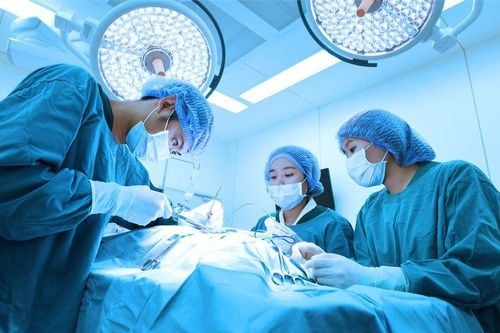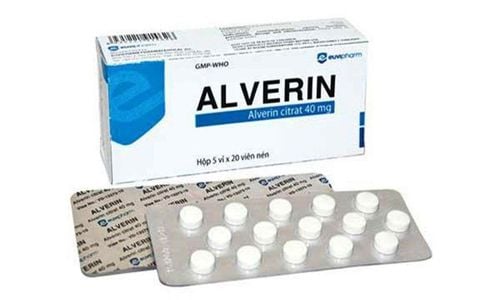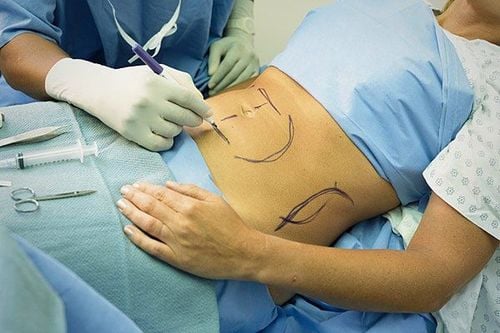This is an automatically translated article.
Post by Master, Doctor Mai Vien Phuong - Gastrointestinal Endoscopy - Department of Medical Examination & Internal Medicine - Vinmec Central Park International General Hospital.
One of the most effective surgeries for obesity is Roux-en-Y gastric bypass and it has been shown to induce new-onset Crohn's disease. In particular, there have been several reported cases of people developing new-onset inflammatory bowel disease following bariatric surgery.
1. Pathogenesis of common inflammatory bowel disease
Genetic mutations or acquired variants of certain genes have been suggested as risk factors prior to the development of inflammatory bowel disease. Genetic alterations in the gene encoding the nucleotide-linked oligomerization region 2 have been found to be associated with Crohn's disease in about 20% of cases. This mutation is associated with a decreased response to bacterial lipopolysaccharides, leading to increased viability of some gram-negative bacteria that migrate into the intestinal epithelium and cause inflammation.
Loss-of-function mutations in alleles encoding fucosyltransferase 2 and thus failure to secrete this enzyme in the gut are associated with an increased risk of changes in the microbiome. Genetic defects leading to abnormal T-cell function and macrophage activity can cause immune-mediated intestinal injury. These cellular changes induce regulated cytokine production and release, which help recruit more inflammatory cells and continue the immune-mediated inflammatory response. Genetic linkage analysis has shown that mutations in the IL-10/IL-10R signaling pathway are associated with infantile or childhood-onset inflammatory bowel disease.
2. New-onset inflammatory bowel disease after obesity surgery Obesity is a chronic disease that can increase the risk of developing other comorbidities such as diabetes, hyperlipidemia, cardiovascular diseases and certain types of cancer (including colon cancer). Interventions to treat obesity are primarily geared toward lifestyle changes such as adopting a low-calorie diet and getting enough exercise. Following these interventions can be a challenge for many obese people, hence some bariatric surgery options. There are several types of laparoscopic procedures performed in the United States, the most common ones being Roux-en-Y gastric bypass (RYGB), sleeve gastrectomy, and gastric banding. through laparoscopy. One of the most effective surgeries for obesity is Roux-en-Y gastric bypass and it has been shown to induce new-onset Crohn's disease. There have been several reported cases of people developing new-onset inflammatory bowel disease following bariatric surgery. A recently published case series of 44 patients who developed new-onset inflammatory bowel disease after surgery, demonstrated that there appears to be a higher rate of disease development following Roux-en-Y gastric bypass. . The majority of cases were women and Crohn's disease was the most common (n = 31), followed by ulcerative colitis (n = 12) and one case of unspecified colitis. The median time to illness after undergoing surgery is 7 years. Similar findings were observed in another series of 15 patients, suggesting a possible role of laminectomy in the development of inflammatory bowel disease.

Individuals who undergo tumor resection show changes in their gut microbiota. This alteration may lead to colonic dysbiosis which plays an important role in the pathogenesis of inflammatory bowel disease. In addition, altered nutritional parameters in these individuals due to malabsorption may play a role in the disease process, for example vitamin D deficiency and hypoglycemia are implicated in the pathogenesis of the disease. enteritis. Interestingly, when surgery is performed in people with well-controlled inflammatory bowel disease, it has been shown to be safe and effective, with an acceptable risk of postoperative complications. The authors' understanding of these mechanisms is limited.
Please dial HOTLINE for more information or register for an appointment HERE. Download MyVinmec app to make appointments faster and to manage your bookings easily.
References: Ghouri YA, Tahan V, Shen B. Secondary causes of inflammatory bowel diseases. World J Gastroenterol 2020; 26(28): 3998-4017 [PMID: 32821067 DOI: 10.3748/wjg.v26.i28.3998]













